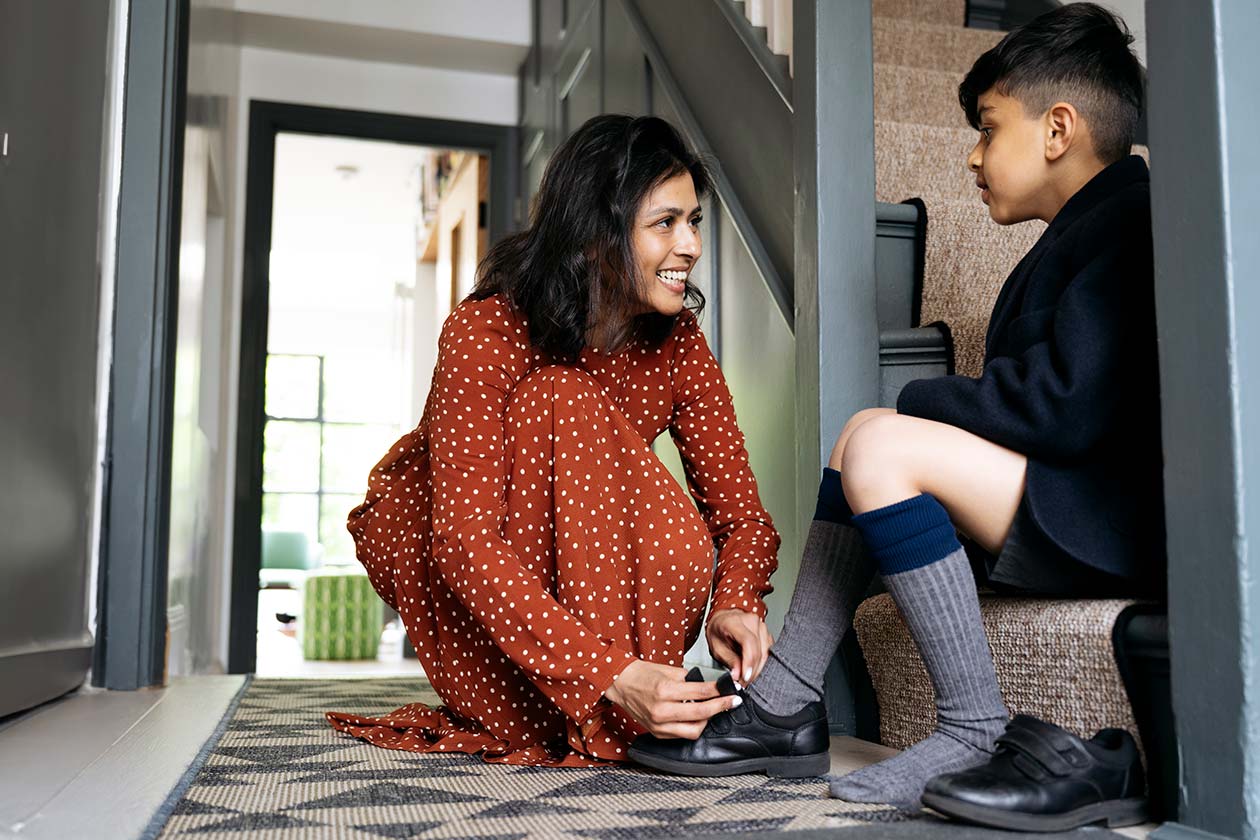
Savings accounts for children
Find out about how you can set aside money for your child's future with a Junior ISA or JISA from Tesco Bank. Take a look at our savings accounts for children.
Published:30 November 2023
All any parent wants is to be able to provide for their child, and saving up over a long period of time could be a great way to give them a brighter future. Even putting aside a small amount for them each month throughout their early life and teenage years could make a huge difference later on, and they'll be able to embark on adulthood with fewer financial pressures.
What's more, parents can use this opportunity to teach their kids about how to manage money and spend responsibly. Before you start thinking about saving up for your child's future, have a read of our guide below.
Why save for your child?
If you start putting money aside for your child at the start of his or her life, by the time they turn 18 they should have a nice little nest egg to spend. To make sure they get the most out of this money, save with the aim of spending it on something beneficial to your child's future. Here are some of the top reasons why parents across the UK are saving for their kids:
Education
While it's impossible to predict your child's plans for the future when they're little, there's every chance they'll need help with educational fees somewhere down the line. Whether they choose to go to university or want to undertake vocational training of some kind, having some money in the bank for their development will help ensure they don't have to miss out on any opportunities that come their way.
Property
When your kids reach adulthood, they're going to want to be independent, and this will eventually mean moving out of the parental home and getting a place of their own. You could help them to achieve this by saving up towards a deposit for their first property perhaps – an investment that will really kick start their future, and will mean they can spend any other money they have on really making the place a home.
Wedding
It might be difficult to imagine now, but one day your child may want to get married and start a family of their own. So that he or she can organise the special day of their dreams, you could start putting some money aside as early as possible – it'll mean you're not left out of pocket when the time comes to plan the big day.
Car
A car is a big financial commitment, especially for an 18 year old. Give your child a head start by saving for a car before they have started their driving lessons, so they can enjoy it with little, if any, debt.
Your child’s savings account
A convenient way to set aside money for your child's future could be making regular deposits into a Junior Cash ISA – otherwise known as a Cash JISA. These accounts are tax-efficient and available to anyone under the age of 18 who is a UK resident. Generally, they are opened by parents, but children aged 16 are also able to open one themselves. It is worth bearing in mind that a child cannot have both a JISA and a Child Trust Fund – only one or the other. Child Trust Funds have been replaced by Junior ISAs.
You can save up to £9000 for the current tax year. What's more, other relatives are able to make contributions to the account as well, so grandparents or aunts and uncles can also help make your child's future a bright one.
Something not many parents are aware of is the fact that when children turn 16, they can have both a JISA and an ordinary Cash ISA. At this age, they can also take care of either account themselves, before being able to spend the money however they wish when they turn 18 – up until that point, the money is tied up. It is therefore up to you, as parents, to offer the right guidance to your children to ensure the money is spent appropriately and responsibly.
*The current rules for ISAs are subject to change by HMRC and the value of tax benefits will depend on individual circumstances.